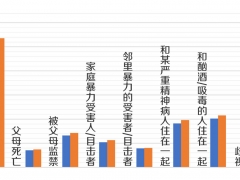Professor M MA, MPhil, DPhil, DSc, FBA, FMedSci, FBPsS, FKC
Professor of Psychology, Institute of Psychiatry
Director of the Centre for Anxiety Disorders and Trauma, Maudsley Hospital
 | |
| address | Institute of Psychiatry Department of Psychology PO Box 77 Henry Wellcome Building De Crespigny Park London SE5 8AF United Kingdom |
|---|---|
| location | Henry Wellcome Building |
| departments | |
BIOGRAPHY
David M Clark studied Experimental Psychology at Oxford University (MA, DPhil) and was clinically trained at the Institute of Psychiatry (MPhil). His first academic appointment was as Lecturer in Clinical Psychology at Oxford University, where he subsequently became a Wellcome Trust Principal Research Fellow and a Professor of Psychiatry. He was also a Fellow of University College, Oxford. Since 2000, he has been Professor of Psychology at the Institute of Psychiatry, Kings College, London. He is also a Director of the Centre for Anxiety Disorders and Trauma at the Maudsley Hospital and (Honorary) Clinical and Research Advisor to the Northern Ireland Centre for Trauma and Transformation in Omagh. He is a Fellow of the British Academy (London), a Fellow of the Academy of Medical Sciences (London), an Honorary Fellow of the British Psychological Society, and Distinguished Founding Fellow of the Academy of Cognitive Therapy (USA). Other posts have included: Chair of the British Association of Behavioural and Cognitive Psychotherapies (1992); President of the International Association of Cognitive Psychotherapy (1992-95); Visiting Professor of Psychology and Psychiatry at the University of Pennsylvania (1991) and Fellow, Center for Advanced Study in the Behavioral Sciences, Stanford Univsersity, USA (2005). Honours and awards have included: the May Davidson Award (British Psychological Society), the American Psychological Association Distinguished Contribution to Applications of Psychology Award, the Academy of Cognitive Therapy’s Research Award, an Honorary Doctor of Science from the London School of Economics (LSE), being voted a World Leader in Anxiety Disorders Research by members of the Anxiety Disorders of America Association (1998), and the Behaviour Research and Therapy Award for the most outstanding article ( “A Cognitive Approach to Panic”) published in that journal in the first 30 years since its founding in 1962.
ACTIVITIES AND INTERESTS
Professor Clark’s research focuses on cognitive approaches to the understanding and treatment of anxiety disorders. His research involves a closely integrated programme of experimental and clinical studies. The general strategy has been to: (i) use clinical interviews and cognitive psychology paradigms to identify the core cognitive abnormality in an anxiety disorder; (ii) to construct a theoretical account which explains why the cognitive abnormality does not self-correct; (ii) test the hypothesised maintaining factors in rigorous experimental studies; (iv) develop specialized cognitive treatments which aim to reverse the maintaining factors; (v) test the efficacy of the treatments in randomised controlled trials, and (vi) make the treatments more broadly available with dissemination studies. In collaboration with colleagues, the research has led to the development of new and effective cognitive therapy programmes for panic disorder, hypochondriasis, social phobia and posttraumatic stress disorder
PUBLICATIONS
Illustrative Publications:
Clark, D.M. (1986) A cognitive approach to panic. Behaviour Research and Therapy, 24, 461-470.
Clark, D.M., Salkovskis, P.M., Hackman, A., et al. (1994) A comparison of cognitive therapy, applied relaxation and imipramine in the treatment of panic disorder. British Journal of Psychiatry,164, 759-769.
Clark, D.M., Salkovskis, P.M., Hackmann, A, Wells, A., Ludgate, J., and Gelder, M. (1999) Brief cognitive therapy for panic disorder: a randomized controlled trial. Journal of Consulting and Clinical Psychology, 67, 583-589.
Clark, D.M., Salkovskis, P.M., Hackmann, et al. (1998) Two psychologicial treatments for hypochondriasis: a randomised controlled trial. British Journal of Psychiatry, 173, 218-226.
Ehlers, A. and Clark, D.M. (2000) A cognitive model of post-traumatic stress disorder. Behaviour Research and Therapy, 38, 319-345.
Ehlers, A., Clark, D.M., et al. (2003). A randomized controlled trial of cognitive therapy, a self-help booklet, and repeated assessment as early interventions for . Archives of General Psychiatry, 60, 1024-1032.
Gillespie, K., Duffy, M., Hackmann, A. and Clark, D.M. (2002) Community based cognitive therapy in the treatment of posttraumatic stress disorder following the Omagh bomb. Behaviour Research and Therapy, 40, 345-357.
Duffy, M., Gillespie, K., and Clark, D.M. (2007) Post-traumatic stress disorder in the context of terrorism and other civil conflict in Northern Ireland: randomised controlled trial. British Medical Journal, 334, 1147-1150. (Full version published electronically at www.bmj.com. Ref: BMJ, doi:10.1136/bmj.39021.846852.BE)
Clark, D.M. and Wells A. (1995) A cognitive model of social phobia. In R.G. Heimberg, M. Liebowitz, D. Hope, & F. Scheier (Eds) Social Phobia: Diagnosis, Assessment, and Treatment. pp 69-93. Guilford: New York
Clark, D.M., Ehlers, A., McManus, F., et al. (2003). Cognitive therapy vs fluoxetine plus self-exposure in the treatment of generalized social phobia (social anxiety disorder): a randomized controlled trial. Journal of Consulting and Clinical Psychology, 71, 1058-1067.
Clark, D.M, Hackmann, A, McManus, F, et al. (2006).
Cognitive therapy versus exposure and applied relaxation in social phobia: a randomized controlled trial. Journal of Consulting and Clinical Psychology, 74, 568-578.
Mortberg, E., Clark, D.M., Sundin, O., Aberg Wistedt, A. (2007). Intensive group cognitive treatment and individual cognitive therapy vs. treatment as usual in social phobia: a randomized controlled trial. ACTA Psychiatrica Scandanvica, 115, 142-154.
Clark, D.M., (2004). Developing new treatments: on the interplay between theories, experimental science and clinical innovation. Behavior research and Therapy, 42, 1089-1104.



